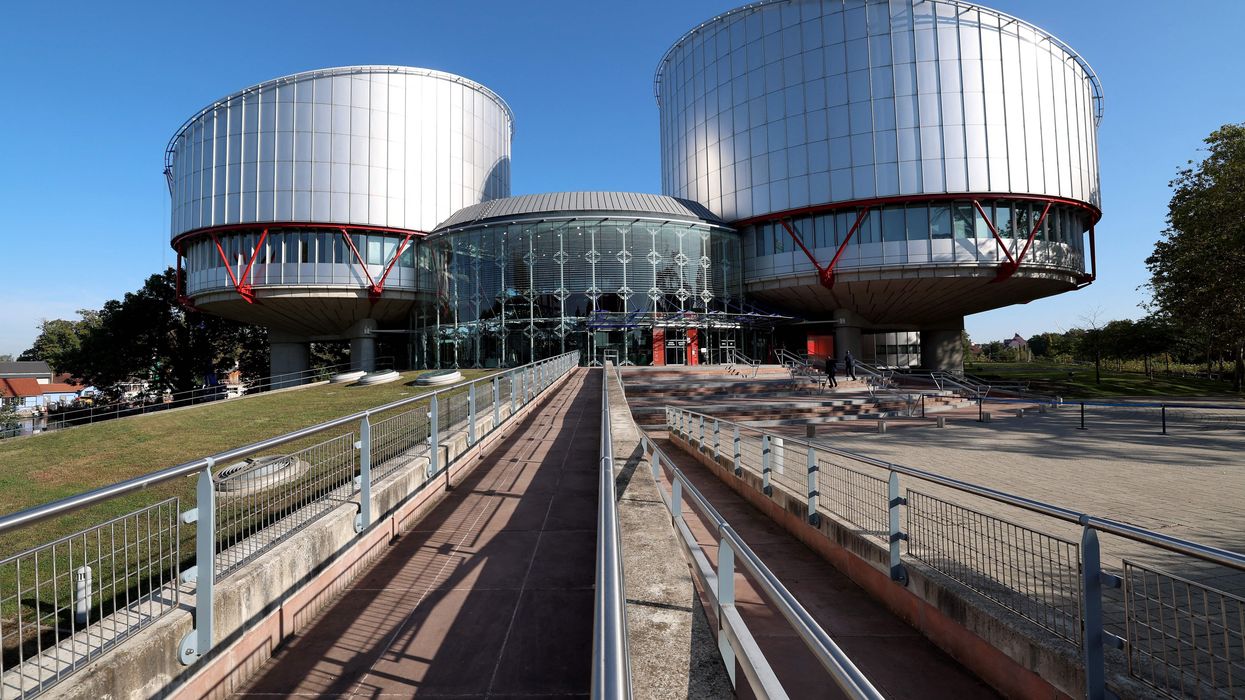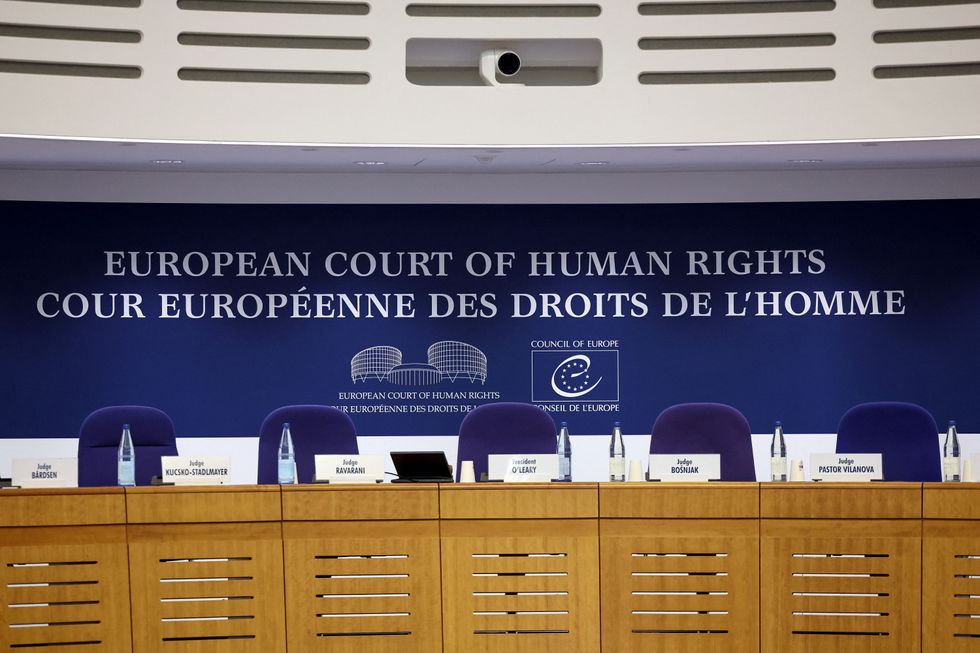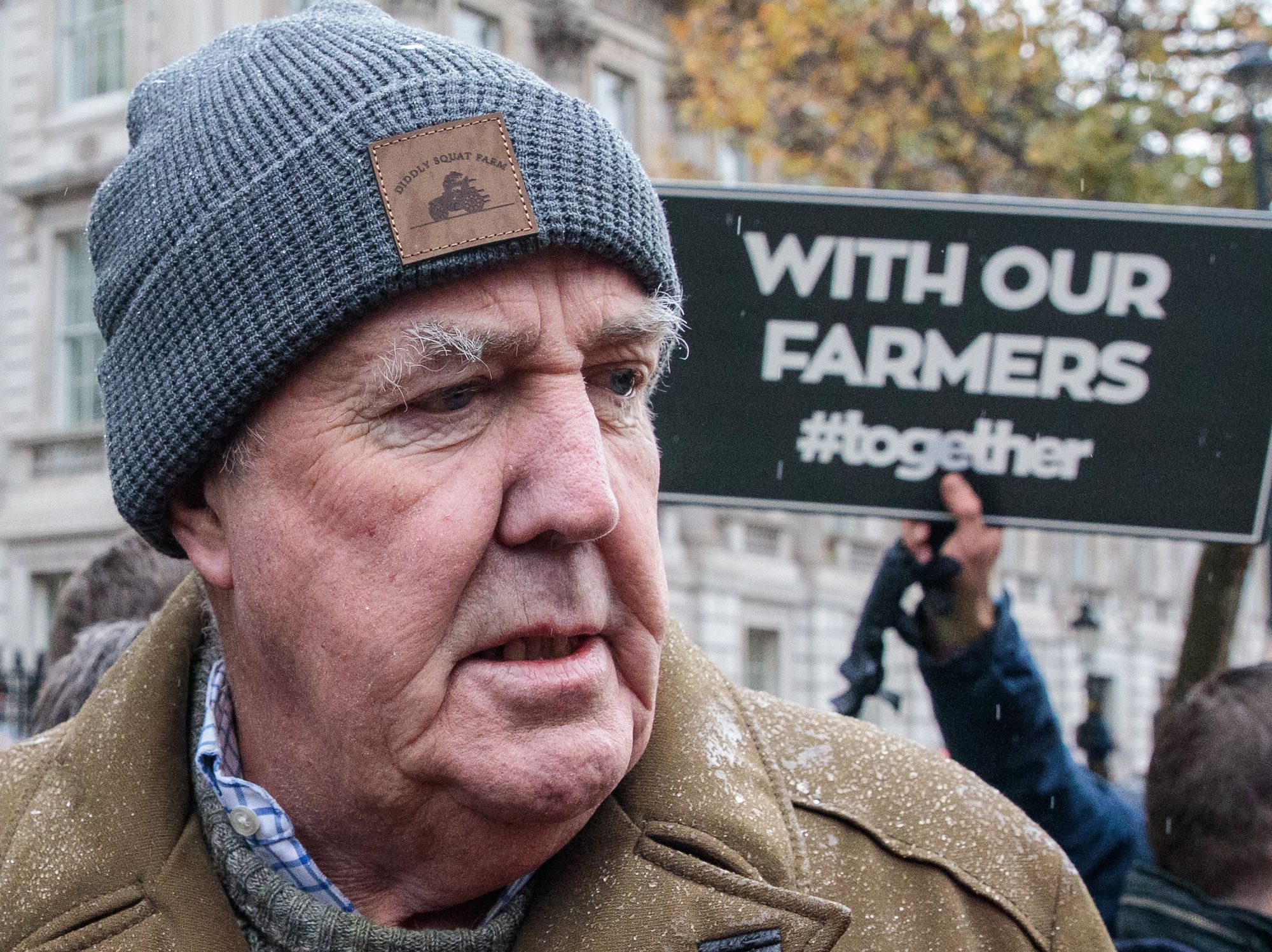'Leaving ECHR would be act of folly - we need debate and reform from within,' writes Sir Robert Buckland MP

Sir Robert Buckland MP calls for debate and reform from within the ECHR
|GETTY
Sir Robert Buckland is Conservative MP for South Swindon
Don't Miss
Most Read
Latest
After the war, Britain’s leadership in Europe was a vital part of ensuring the freedom of our continent.
Our “greatest generation” was determined to ensure that never again would Europe suffer tyranny and war.
British Conservatives, from Winston Churchill to the great Nuremberg prosecutor and leading Conservative, Sir David Maxwell-Fyfe, resolved to create a framework of fundamental human rights and freedoms.
The European Convention on Human Rights (ECHR) is the product of their labours.
Not to be confused with the European Union, the Convention was adopted and signed by many European nations in 1950 and the Council of Europe, where representatives of those free countries could meet, was set up.
The European Court of Human Rights at Strasbourg developed from those institutions and is the forum where the Convention Rights are policed and interpreted.

Leaving the ECHR now would be an act of folly, argues Sir Robert Buckland MP
|GETTY
For the greater part, the cases decided by the Strasbourg Court are not directly binding on the UK. Whilst they may be considered by our courts, the cases are not binding upon them.
Like many other Conservatives, I am concerned about some of the ways that the Strasbourg judges are now seeking to interpret human rights law.
For example, the recent Strasbourg case about climate change involving Switzerland represents a wrong turning and does not reflect the Convention’s emphasis on fundamental human rights as opposed to concepts such as the “right to work” or the “right to benefits” that are socialistic and unacceptable.
The good news is that cases not involving the UK, such as the Swiss case, do not bind our UK courts and most certainly do not have to be followed!
When the UK is itself a party to a case brought to Strasbourg, the decision made is binding on us, but the way in which it is then implemented is a matter of negotiation and deliberation rather than one of immediate imposition.
The UK is hardly ever found to be in breach of the Convention, anyway.
In 2023, there was just one case of breach, and in 2022, just two cases.
Russia, in sharp contrast, was found to be in breach on 374 occasions in 2022, and is, since its appalling invasion of another Council of Europe member, Ukraine, no longer a member.
There has been much debate about the operation of so-called “pyjama injunctions” such as the one that prevented the first plane to Rwanda from taking off in 2022.
Quite rightly, Rishi Sunak and the UK took up the issue of reform of this procedure and as a result, the Court has now reformed it and tightened it up, making it more difficult for such orders to be obtained with the result that the Rwanda scheme is now much less likely to be impeded by this type of injunction.
This is an example of how, with political will and focus, changes can be made to the way in which the Court operates.
READ MORE OPINION:
As Chair of the Northern Ireland Affairs Commons Select Committee, I am extremely conscious of the important role that the ECHR plays in underpinning the Good Friday Belfast Agreement of 1998, which moved Northern Ireland onto the path of peace.
We should be very aware of all parts of our United Kingdom when talking about the ECHR, and tread carefully when doing so.
For the UK to leave the ECHR now would be an act of folly and a failure of leadership that puts Britain in the same camp as Russia and Belarus and endangers our Union.
When the prisoner voting issue was dealt with, no-one suggested leaving the ECHR.
Instead, we stood our ground and negotiated a very sensible agreement which saw very little change, if any, to our policy.
Debate and reform from within is the answer, not walking out of the door.










